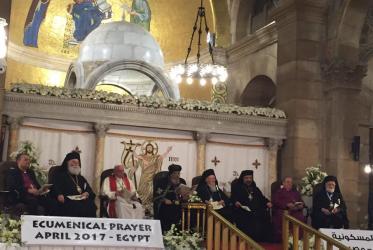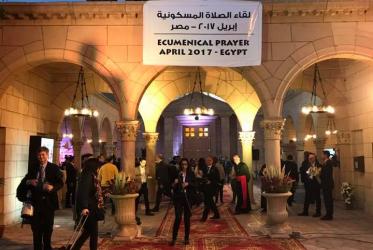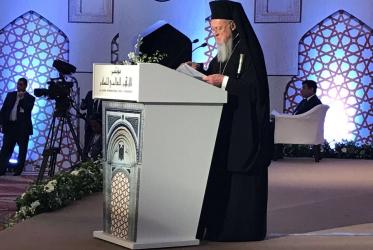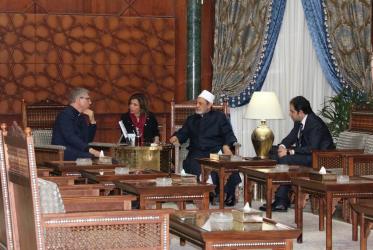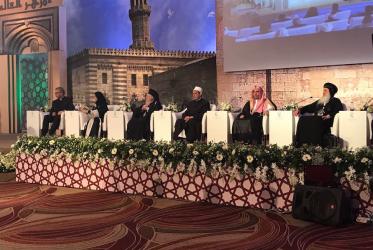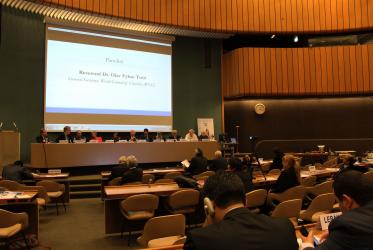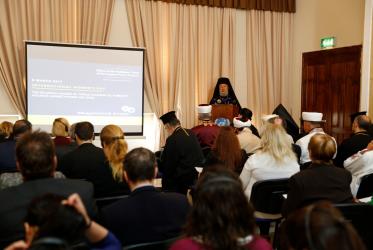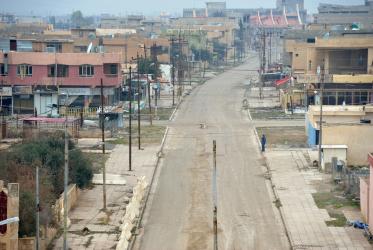Displaying 181 - 200 of 314
02 May 2017
Historic ecumenical prayer in Egypt for peace and unity
30 April 2017
Islam and Christianity: finding the common ground
16 March 2017
In Lebanon, refugees face hardship - but find hope
16 March 2017
WCC gravely concerned over Israel’s travel ban
09 March 2017
“Walking Together” project explores pilgrimage traditions
19 December 2016
“There are no strangers here” – Saint Irenaeus a key to unity?
19 December 2016
‘No Christmas bells in Mosul’ for a third year, says Assyrian priest
14 December 2016
